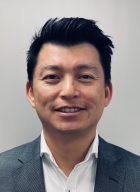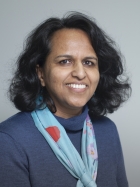The Connected Health pillar is the first research theme launched by Tyree IHealthE in 2021. This research theme has a clinical and academic lead and in 2021 the Catalyst Awards were launched to recognise outstanding ideas, and support projects working in the Connected Health space.
The ultimate goal of connected health is to design a system in which anyone involved in the care of a patient can have easy access to the tools and information they need to support that patient’s health – including the patient themselves.
You can learn more about the work Tyree IHealthE does with industry, read about recent projects, and browse current capabilities by downloading the 2022 Tyree IHealthE Connected Health Prospectus. If you are interested in knowing more, please don't hesitate to get in touch.
Connected Health Prospectus
Connected Health Leads
Medical Lead
Associate Professor Sze-Yuan Ooi
Sze-Yuan is a clinician researcher with extensive clinical experience and expertise in the fields of coronary intervention and cardiac device implantation, including novel implantable cardiac device and remote monitoring technologies. He is a Staff Specialist at the Prince of Wales Hospital and is the current Director of the Coronary Care Unit. Dr Sze-Yuan Ooi obtained his Bachelor degree in Medicine and Surgery with Honours from the University of Queensland in 1997. He is a Fellow of the Australasian College of Physicians (FRACP) and the Cardiac Society of Australia and New Zealand (FCSANZ). Sze-Yuan held the position of Research Fellow in Cardiology at the Institute for Cardiovascular Research in Leeds, England from 2003 to 2005. He was awarded a Doctorate in Medicine with Commendation through the University of Leeds in 2008 for his thesis, “The role of cytokines in the pathogenesis of the acute coronary syndrome”. His research interests include the pathogenesis of coronary atherosclerosis and the role of inflammation, coronary physiology, novel assessments of and modulation of the coronary microcirculation, new device technology and telehealth. Sze-Yuan has been awarded over $14.6M in research funding over the last 5 years, $1.89M as CIA. He has published over 30 papers in peer-reviewed journals. Sze-Yuan holds a Conjoint Associate Professor position with UNSW Sydney.
Technology Lead
Associate Professor Beena Ahmed
Beena is a Senior Lecturer in the School of Electrical Engineering and Telecommunications at UNSW Sydney. Her research is applied in nature, integrating cross-disciplinary principles from healthcare, speech processing and computer science using collaborations across all fields. She has led the application of novel machine learning techniques to clinical domains with severely unbalanced datasets. She has pioneered the use of machine learning to detect pronunciation errors in disordered speech and predict the risk of dementia from speech. Beena has also worked on developing novel algorithms to quantify the complexity of the sleep electroencephalogram and detect the presence of sleep disorders such as insomnia to assist clinicians in the diagnosis process. She has also worked on using machine learning to predict mental stress levels using signals collected from minimally invasive physiological sensors (e.g., heart rate, skin conductance) and then used the output in biofeedback games to help users self-regulate their stress levels. She has also developed novel methods to identify cancerous fluorescence lifetime images. She has received $6+ million in funding, both local and internationally, and published over 80 career publications. She is also the founder of Say66, where she has translated her research to provide an automated speech therapy system for children with speech disorders.


